Aberdeen cult hero Roberto Bisconti has hailed the Dons and late boss Ebbe Skovdahl for saving his football career, in an exclusive interview with The Press and Journal.
Former Reds defensive midfielder Bisconti, now 50, was reflecting on his Pittodrie spell for the first time in more than two decades after leaving the club.
The Belgian was 27 and a seasoned professional when he joined Aberdeen, having already had three stints with boyhood club Standard Liege, playing more than 100 times.
He had also turned out for Seraing and Charleroi in his homeland, and in Italy’s Serie B with Monza, by the time he was secured by the Dons on a free transfer in the summer of 2001.
Despite concerns over his injury record (including the nickname “Bobby Biscuits”), Bisconti’s tidy passing and tough-tackling style made him an instant hit with fans.
Though his stay ultimately lasted just 18 months and ended after a breakdown in his relationship with the Pittodrie board, Bisconti ranks his year-and-a-half in the north-east as a high point in his football story – one which helped him go on to earn 13 caps for his country.
Bisconti said: “I put Aberdeen in the top because I really liked the first year at Aberdeen. I liked the mentality of Scottish football. I liked the way the fans were cheering.
“It felt good to come to Scotland, because I was coming off having a lot of injuries in Belgium – I almost stopped playing football, because I was coming out of four years of non-stop getting injured.
“I could have re-signed for a year at Standard Liege.
“I said to my agent: ‘No I won’t come back to Belgium, I have to leave and remove this label of the player that gets injured all the time’.
“And I think that coming to Scotland did me good and I have very good memories of it.”
Late boss Skovdahl’s promise of European-style football at Aberdeen
Aberdeen had finished 10th and then seventh in Skovdahl’s first two seasons in charge before the veteran Dane flew out to try to convince free agent Bisconti to sign for him.
Bisconti admits – having seen potential deals with Spain’s Levante and Espanyol not come off – he was initially uncertain about whether Scotland was the right destination.
But a promise of European-style football from Skovdahl, a four-time Danish title winner, won him over and he penned a two-year Dons contract.
Bisconti said: “He really wanted me. It was for him that I accepted.
“At first, I wasn’t very keen on coming to Scotland, and he talked to me for over an hour. He had come to Belgium, we met at the airport, at the hotel.
“He said to me: ‘Here’s the system – I’m not a Scottish coach, I’m not going to make you run all the time in training. I want to play European football and I want to base the system around you.’
“And it made me say: ‘Yes, I want to (join Aberdeen).'”
Skovdahl died in 2020 after a long battle with cancer – with The Press and Journal breaking the news to Bisconti for the first time during our interview.
“I didn’t know – you just told me,” Bisconti said, reflecting on his former boss.
“He was a really good person. He was someone very close (to his players), sociable.”
Aberdeen’s ‘beautiful’ 2001/02 season
Skovdahl, for his part, once described Bisconti as his best-ever signing – and the midfielder played a big part in Aberdeen securing fourth in the Scottish Premier League and Uefa Cup qualification during the 2001/02 campaign, with 31 league starts.
The Dons’ opening to the season had been goalless, with losses to Rangers (0-3), Hearts (1-0) and Hibs (2-0).
However, Bisconti says, he voiced concerns – through Skovdahl’s French-speaking assistant Gardner Spiers – over Aberdeen’s tactical approach in their first three matches, telling the coaching staff they needed to press higher and be more aggressive, leading to a change of tack and “a beautiful season”.
Bisconti said: “Then we won one victory after another.
“I remember that we broke the record that year for home wins (nine in a row), and we beat Celtic who hadn’t been beaten for over a year – and it was something beautiful.”
The 2-0 December 22, 2001, victory over Celtic is remembered as much for the post-match scenes as the football itself, with jubilant Dons fans watching on as Ivorian forward Eugene Dadi led his team-mates in “the train”.
Bisconti remembers this unique celebration as “the caterpillar”.
Bisconti on the Aberdeen fans, his team-mates and his language barrier regret
The Red Army left a lasting impression on Bisconti, his combatant style fueled by “aggressive” supporters.
“You make a tackle, you recover a ball – and it’s as if you scored,” he recalled. “It encourages you and makes you want to give more.”
Bisconti was many fans’ pick for player of the year in 2001/02 – but he also rated many of his team-mates’ abilities.
Forwards Robbie Winters and Dadi, Norwegian right midfielder Cato Guntveit, and his central midfield partner Darren Young were “good players”, and skipper Derek Whyte was a “very good guy and captain” in a “great little team” who “had a lot of fun together”.
If Bisconti has a regret from his first season at Aberdeen, it is “not learning English quickly”, which he thinks would have helped him better understand the culture at the club off the field and settle into north-east life.
Midfielder lauded for Uefa Cup display against Hertha Berlin
The first month of the 2002/03 campaign saw the Dons beat Romania’s Nistru Otaci in a preliminary tie to set up a Uefa Cup first round battle with Germany’s Hertha Berlin.
After the first leg on September 17, a 0-0 home draw, Bisconti was lauded for his all-action performance.
He recalls being fired up by an incident before the clash, after he and French midfielder Nicolas Fabiano overheard scouts from Hertha disparaging Aberdeen as “not good” when the duo were suspended for an earlier league match.
Bisconti said: “They came to our home stadium, and we were the whole team and they saw another team.
“We were much more aggressive, and we deserved to win that day against them.”
The Hertha tie was decided by a Michael Preetz goal for the Germans in the second leg at the Olympic Stadium, and it ended up being “the last big match” Bisconti played for Aberdeen.
“Physical problems” and “problems with the management” – i.e. the Dons board – laid the course for his exit by mutual consent, following the cancellation of the final few months of his contract, on deadline day in January 2003.
School fees comments led to breakdown of Bisconti’s relationship with Aberdeen board and exit
In late October 2002, Bisconti, who had on already signalled his openness to signing an extended contract beyond the summer of 2003, was discussing his future at a press conference.
He said a pre-requisite to him remaining at Pittodrie for longer would be an extra £28,000 per year to cover sending two of his three children to a French-speaking private school in the Granite City.
Bisconti’s son Julian and daughter Andrea, then aged nine and seven, had returned to Belgium with their mother Joelle and the couple’s youngest son, Hugo, due to their dissatisfaction with their state school in Aberdeen.
The Dons’ chief executive at the time, Keith Wyness, refused to comment, labelling contract negotiations “private”.
But, although there were continued noises from both Bisconti and gaffer Skovdahl which suggested hopes an extended stay were not entirely extinguished, the Belgian thinks the board perceived his public comments on contract matters as “disrespectful”.
Bisconti believes his candidness on the school fees issue would have been accepted in Belgium – however, the fall-out from the comments spelled the beginning of the end of his time in Scotland.
He said: “It was very expensive. And I told the journalist: ‘Yes, I would like to sit down at the table (to discuss a new deal), but they will have to finance the private school.’
“The fact that I had spoken about that, that’s where it all started – the problems.
“We didn’t discuss re-signing.
“At the time, the club was starting to have problems. The TV, the contracts, the money, the sums were no longer… financially, it was less good.
“We never got back to the table, because they didn’t accept what I had said.
“The mentality is different (in Belgium).
“It’s a shame that this event put a stop to everything else.”
In late-November 2002, just weeks after the school fees blow-up – where Bisconti thinks fans took his side – there was a further problem when he returned to Belgium to receive treatment for a hamstring injury at former club Standard Liege.
Skovdahl said the trip had been sanctioned so the midfielder could also deal with personal business, but other reports citing club sources stated Bisconti had actually gone AWOL and was fined two weeks’ wages on his return.
Bisconti insists it is “nonsense” to suggest he had left Scotland without Skovdahl’s permission, but says the club’s board were unhappy over what they considered preferential treatment of him by the manager.
When Skovdahl resigned in December 2002, with the Dons having accrued just four league wins, Steve Paterson was brought in as his replacement.
Bisconti claims “honest” Paterson told him club chiefs didn’t want him to play.
The new boss eventually informed him he was free to find a new club on Hogmanay 2002.
Though Bisconti was unsuccessful in earning a contract with Nottingham Forest following a trial, he agreed a deal to depart Aberdeen on the final day of the January transfer window, subsequently making a short-lived move to Romania’s Rapid Bucharest.
Bisconti refutes Aberdeen debt and damage claims against him
However, Bisconti’s fractious relationship with the Aberdeen board continued even after he had left.
Dons chief executive Wyness told the media Bisconti had left the north-east owing thousands of pounds in unpaid rent and phone bills, as well as money to cover damage done to his former home in Portlethen – revealing the club were pushing for a European playing ban against him.
Bisconti says he was not even aware Wyness had made those comments, and he only received a letter regarding damage to a bathroom, which he denied responsibility for.
“I said: ‘There’s insurance for that, it’s not my place to pay for things I didn’t break. It’s normal building deterioration or a pipe that probably burst underneath. This was not our fault.'” Bisconti explained.
“The rents were paid until I left.”
Standard Liege return and Nice spells brought Bisconti Belgium recognition
Bisconti’s post-Aberdeen spell in Romania “was the biggest disaster ever”, he said, due to the style of football and the “mentality”.
However, his subsequent fourth spell with Standard Liege in 2003/04, followed by two years in France’s Ligue 1 with Nice, brought belated Belgium recognition – something he had been tipped for at the Dons ahead of the 2002 World Cup.
Bisconti ended his professional career with a year-long stint at Ligue 2 Guingamp in France and a very short period in Greece with Panthrakikos, continuing to play at lower levels afterwards.
News of the former Aberdeen star has been scarce since he departed Pittodrie. A 2012 fraud saga surrounding his divorce made the headlines, with Bisconti at one point receiving an 18-month prison sentence, which he successfully appealed before receiving community service and a fine instead.
“I saw that the news had gone around Europe,” Bisconti said, when asked about the legal problems.
Currently living in Liege with long-term partner Celine, and with a younger daughter, 14-year-old Deva, from another relationship, Bisconti now works as a football agent.
He remains grateful for the spell at Aberdeen, which helped prolong his playing career and put him back on the path to his Belgium breakthrough, and said: “I re-signed with the Standard and there I became an international.
“But I should have already been international when I was in Scotland.
“It was thanks to that year, which I spent in Scotland, that I knew that everything could start again – and that did me a lot of good.”
Ryan Cryle was speaking to Roberto Bisconti via French translator Manon Barlow.
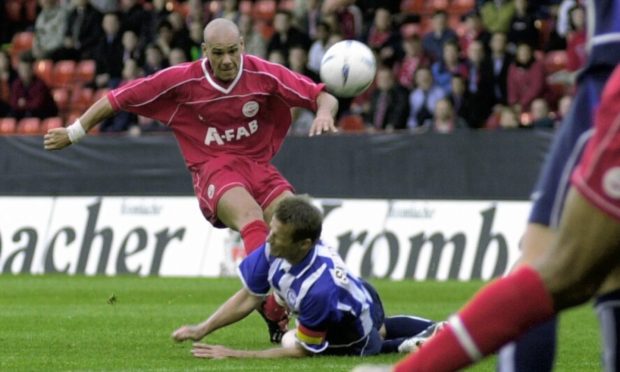
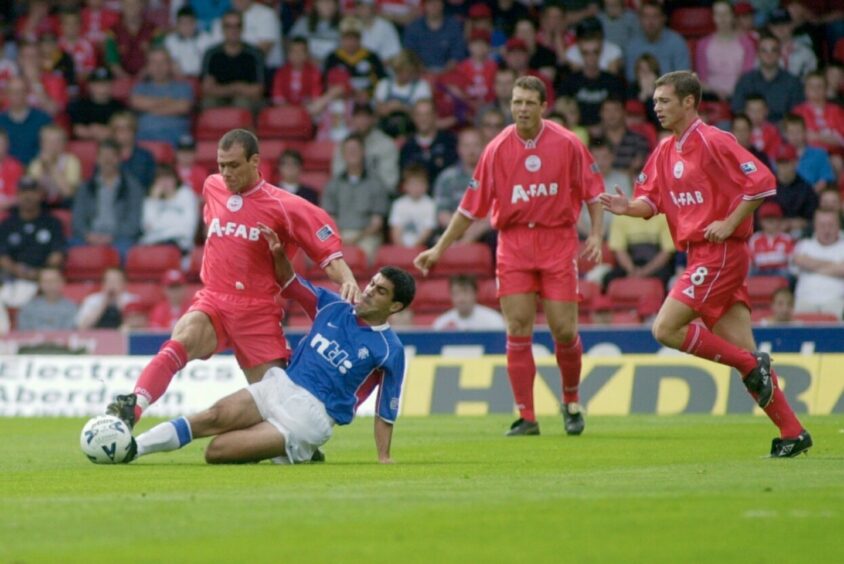
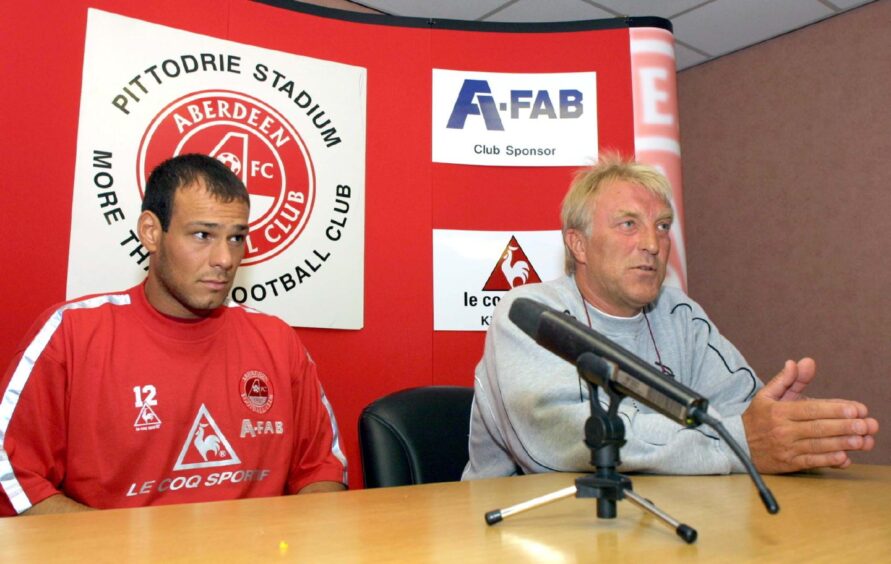
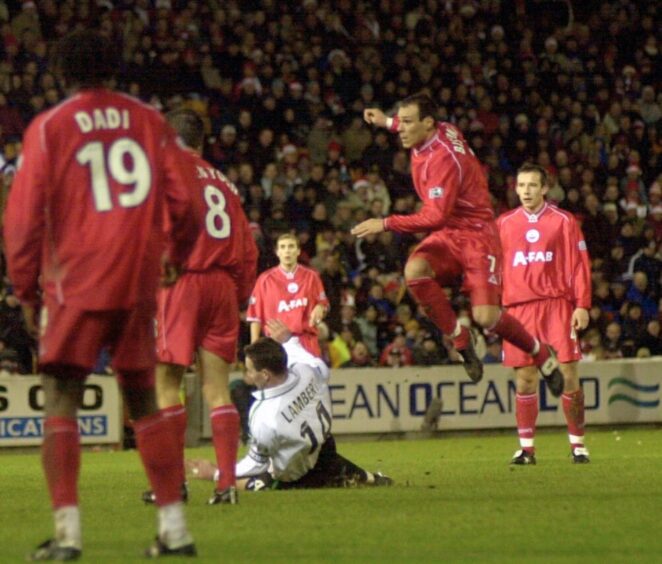
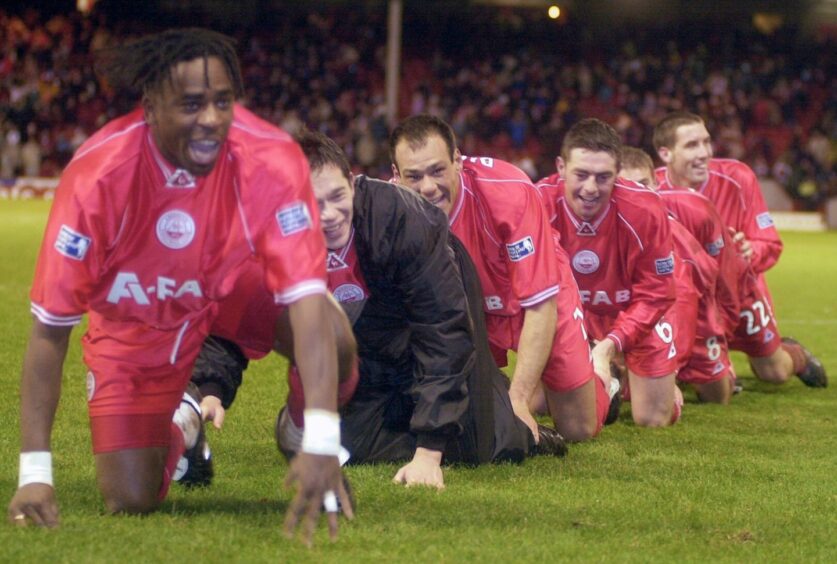
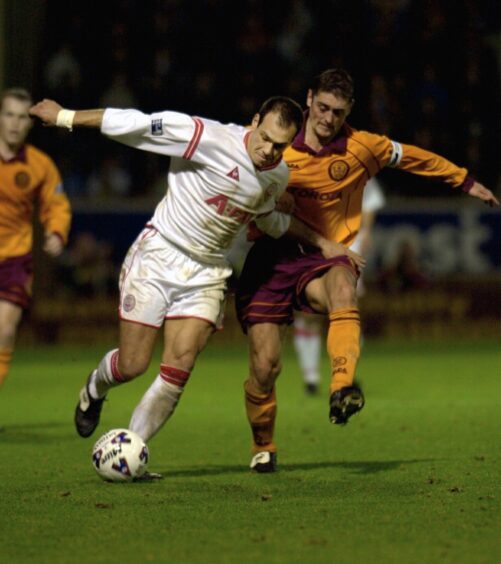
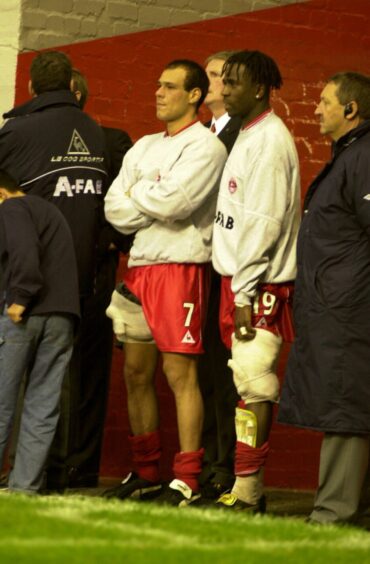
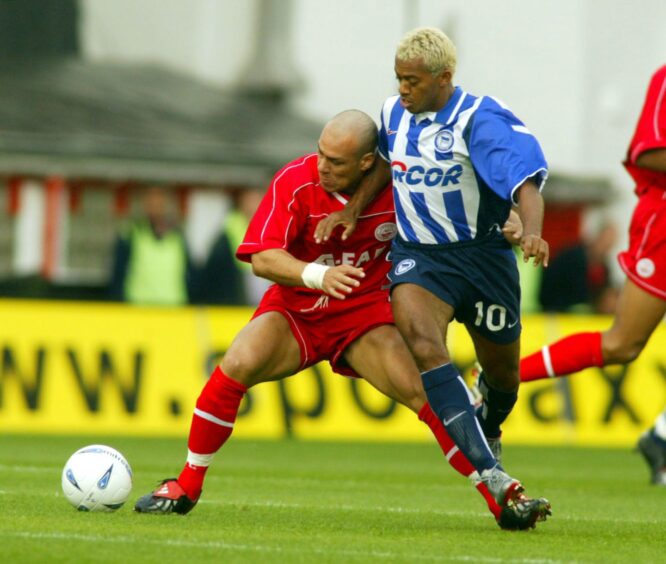
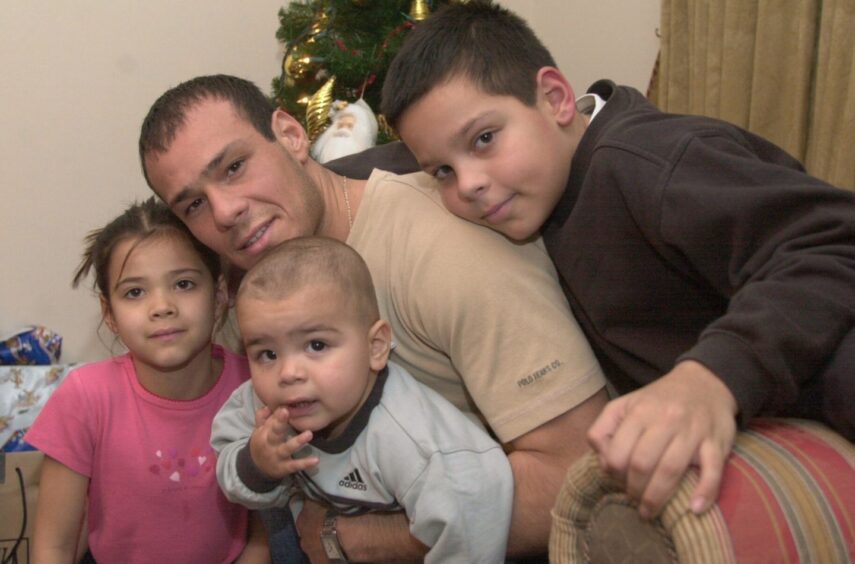
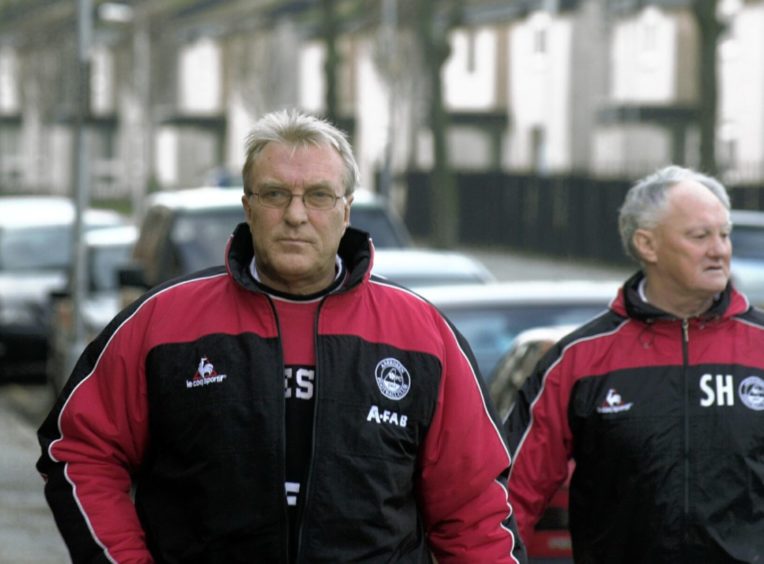
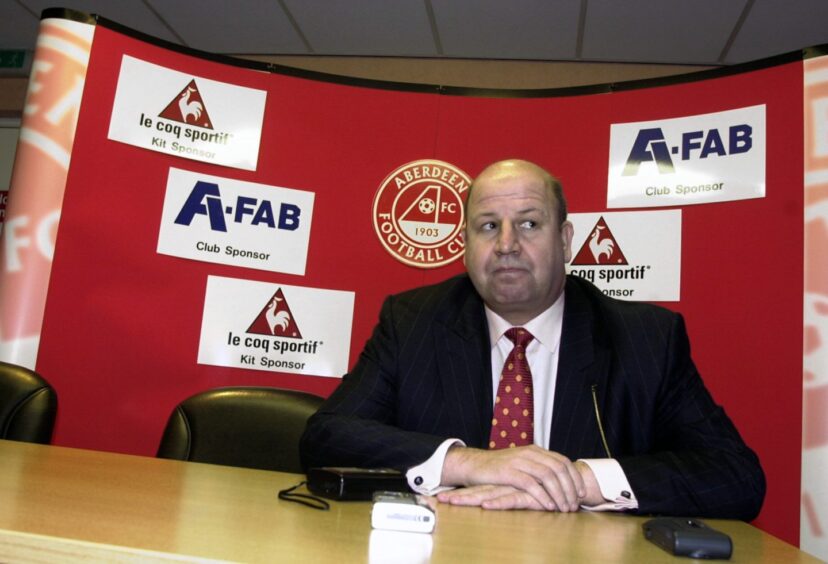
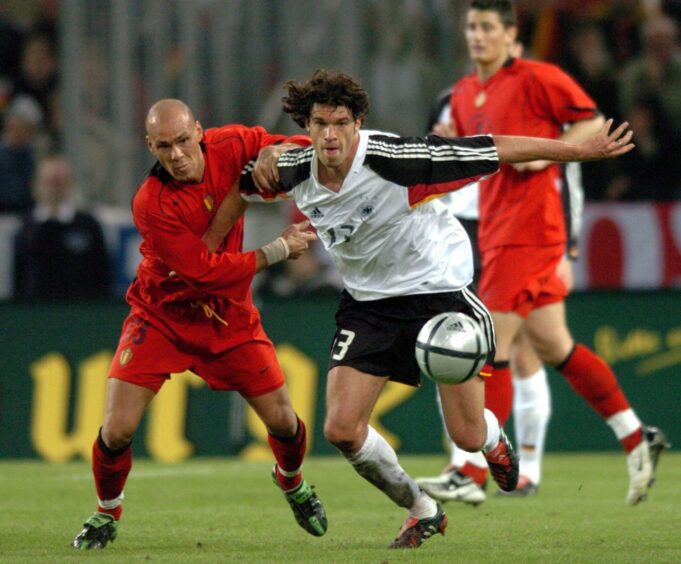
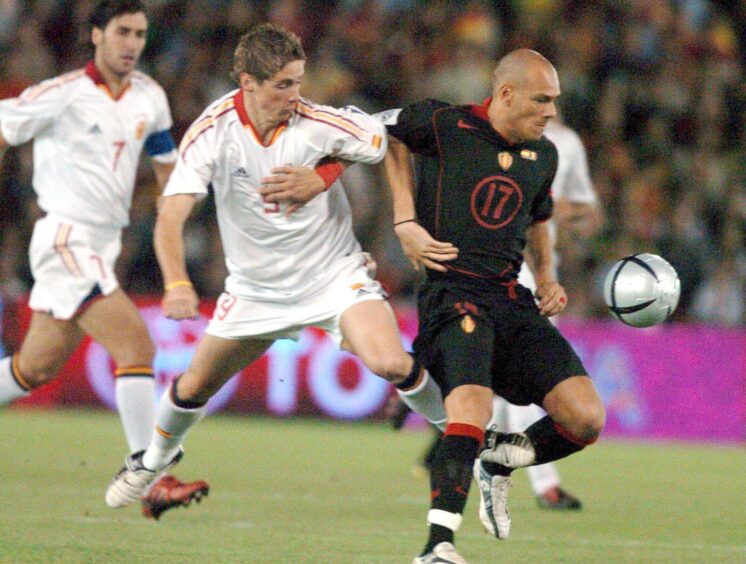
Conversation